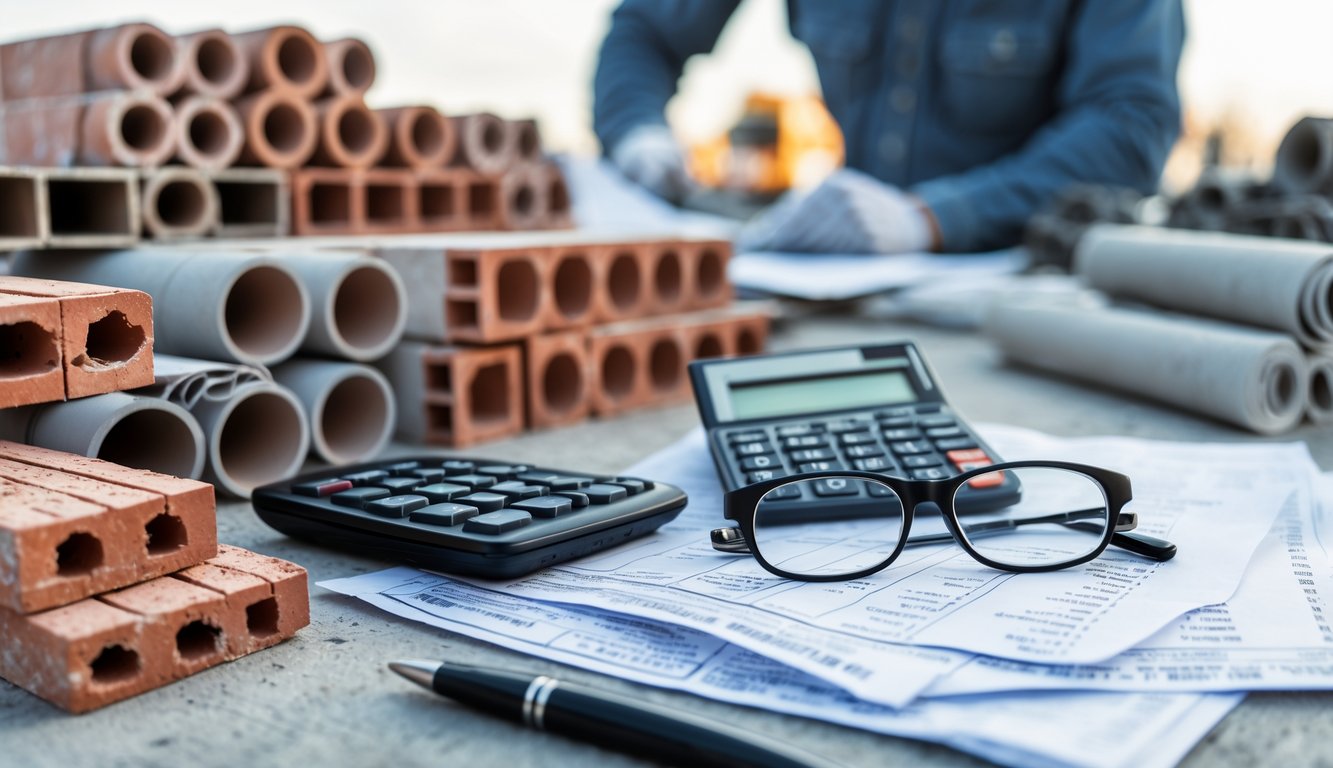
First quote from a builder lands in my inbox, and I’m already rolling my eyes. Always, always, there’s some sneaky surcharge nobody warned me about. Here’s the punchline: most of us end up shelling out at least 8% more than we expected for “basic” stuff like drywall or studs, and it’s all thanks to hidden markups and supply chain shenanigans nobody bothers to mention up front (Billd’s got the dirty details if you’re bored enough to look). Every time I see a “convenience” fee tacked onto drywall, I can practically feel the insulation budget evaporating.
My phone rings. Client’s annoyed, wants to know why the price went up. Try explaining vendor “handling” charges or a builder’s random markup for moving two pallets across a yard, when all they wanted was plywood. And if you skimp on underlayment? Rework alone can drag the build out for weeks and eat another 10% of the budget, and that’s before you realize you just got nailed for a “coordination” fee that nobody needed. Miss those, and you’ll be arguing with a supplier like you’re trying to put toothpaste back in the tube.
Oh, and my buddy’s “solution” was to join some group buying club—thought he’d get better rates. Instead, he got a “broker’s charge” that was never mentioned. So yeah, ask for a breakdown on every little thing, and don’t trust that two vendors use the same words for the same fee. If someone says “no hidden markups,” make them prove it. Don’t just take their word.
Understanding Hidden Fees in Building Materials

You ever trust that first renovation quote? I’ve run numbers a dozen ways and still missed random price bumps, weird extra charges for plain lumber, or labor bits I thought were included. Next thing I know, I’m scrambling with paint still wet.
What Are Hidden Costs and Why Do They Matter?
Bought some “cheap” sheathing last week—looked like a deal. Then came the delivery fee, disposal charge, and a double-handling hit because the crew hated the batch. Hidden costs, as one cranky contractor told me over coffee, aren’t always a scam. Usually, it’s just nobody telling you the whole story.
And get this: a 2023 CMAA study pegged 10.89% of project costs as ‘rework.’ That means, yeah, all those delivery surcharges, minimum order fees, and “storage in the rain” penalties? They add up. Building materials just keep bleeding your budget—mistakes, price hikes, whatever. I’ve watched suppliers add “environmental surcharges,” “rush fees,” and even a “bulk fastener handling” fee. Sometimes I think I’d be better off digging my own foundation.
Commonly Overlooked Fees During Construction Projects
Trying to pinpoint where budgets explode—site prep is always lurking. Unplanned site prep costs hide under material quotes. Lumber prices spike if shipments are late or tariffs pop up mid-build. And it’s not just the big stuff. Utility upgrades, awkward delivery drop-offs, or the “final clean” charge after you’ve already packed up.
Contractors pitch “optional” upgrades—fire-rated drywall, insulated pipes, impact glass—but they rarely show up in the first quote. Rework costs from cheap materials keep climbing with every change order. No spreadsheet ever captures how “savings” balloon into extra weeks and overtime. Quantity takeoffs? Not even close. Every callback means tearing out work or paying another delivery fee. Ignoring these hidden fees is basically begging to lose money on every “good deal.”
Breaking Down Hidden Costs in Material Pricing
Nobody warns you about the costs that show up on your invoice days after you “locked in” your numbers. The profit margin? Gone. Just like that.
Manufacturer and Supplier Markups
Wholesale price inflation—sounds dull, right? But look, I’m staring at plywood quotes and realize the “base price” is a joke. Manufacturers sneak in their own increases before your supplier even gets a chance to add theirs. It’s wild—industry stats say subcontractors eat hidden charges that pad bids by 8% or more, just from material markups you never saw coming.
No one hands you a sheet labeled “commodity volatility upcharge.” But three months later, roof underlayment costs double. One manufacturer I used last year swapped adhesives and blamed tariffs, then tacked on a “transit adjustment.” When I called them out, they ghosted me. Like I’m asking for trade secrets. Profit just leaks out, and now, of course, they’ll sell you a “premium fastener” for extra. If you’re not tracking these, your bids get shakier and harder to defend.
Shipping and Delivery Charges
“FREE shipping”—don’t get me started. You need trusses, and suddenly there’s a “fuel adjustment,” “liftgate handling,” or “rural surcharge.” Rains? Now you pay “return to yard” and “re-attempt delivery” fees. How is that my fault? Am I supposed to control the weather?
A contractor I know got stuck with storage fees because the builder’s schedule slipped by four days. Didn’t matter that the delay was someone else’s fault. Hidden fees like these—shipping upcharges, fuel, storage, weather—can eat up 2% to 6% of your materials budget. And half those “rush delivery” fees? They make zero sense if the original ship window wasn’t even locked in. “Zone 3 access”—what is that, anyway? Still don’t know, but it’s always on the bill.